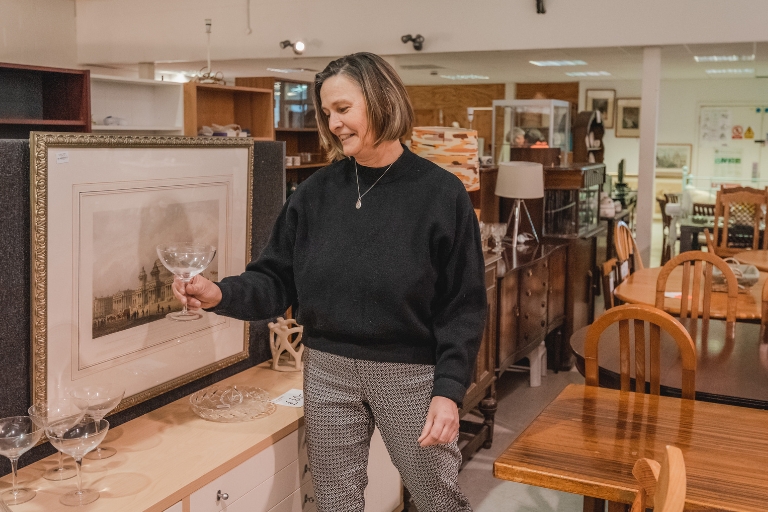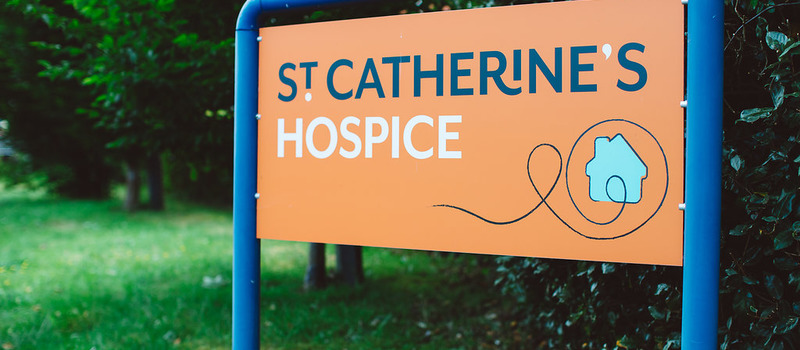#BreakTheBias – International Women’s Day
Today is International Women’s Day. To mark the day Dr Patricia Brayden, our hospice Medical Director, shares some reflections.
“Maybe you’ve heard this riddle.
There was an awful car crash involving a father and his son. Sadly, the man died at the scene. But when the child arrived at the hospital and was rushed into the operating theatre, the surgeon pulled away and said: “I can’t operate on this boy, he’s my son”.
How can this be?
Well, it’s easy isn’t it? Or it was to me. The surgeon was the boy’s mother, obviously. But are you one of the many people who had to think twice; the people who made an automatic assumption that the surgeon was a man? It’s an example of unconscious bias, if so; the biases that we all have and are not aware of until we uncover them. This gender bias is common in health and social care.
I was asked, for International Women’s Day, if I’ve experienced gender bias in my career and the answer is yes, of course. I’m a woman working in medicine; it’s there all the time. I’m lucky. I’m in a senior role and successful and I don’t think bias has stopped me advancing in my career; I was appointed to the first registrar job and first consultant job I applied to. But I am working in palliative medicine, a predominantly female specialty. I’m sure my experience would be different if I had chosen neurosurgery, or orthopaedics.
Despite my seniority and success, I still experience gender bias all the time, at home and at work
Every woman in medicine will have had the experience of answering their home phone and being asked ‘Can I speak to Dr X?’ or ‘Is Dr X there?’ rather than ‘Hello, is that Dr X?’ They’ll have noticed too, the slight surprise in response to their reply ‘Yes, Dr X speaking’ or the surprise to the answer ‘Dr’ when asked ‘is it Mrs, Miss, or Ms?’ (Why should my marital status matter to anyone, by the way? Don’t get me started on that!)
I’ve lost count, too, of the times I have done ward rounds with junior medical colleagues and patients (or relatives) have addressed their comments to the most junior member of the team, because they assume the (younger, usually taller) MALE colleague must be the boss, the one in charge. It’s as embarrassing for them as it can be for me. And there is so often an automatic assumption that the men are the doctors and the women are nurses, which I’m sure is infuriating to my nursing colleagues.
Stereotypes in children’s toys and books don’t help here, of course. We see you, Peppa Pig and Dr Brown Bear.
That this bias exists, is, of course, ludicrous in the 21st century
Over 60% of UK medical students are female. Women now make up 48% of the medical workforce in the UK (53% in Scotland and 51% in Northern Ireland.) More people are calling out the bias but there’s a long way to go.
It’s still common to see all male panels at medical conferences or webinars, though it’s encouraging to see more male colleagues refusing to participate in these ‘manels’ and suggesting women who would be equally able to speak. It’s not quite as common as it was to see minutes of NHS meetings where the male doctors are listed as Dr Firstname Lastname and the women just as Firstname Lastname. I’m grateful to colleagues locally who have made a conscious effort to stop this and either to be consistent or remove titles entirely. During the pandemic, though countless women, experts in their fields, have been introduced and thanked on TV as ‘Devi’ or ‘Sue’ or whatever their first name is, rather than as ‘Professor’ or ‘Doctor’. Far more men are accorded their professional title. If you haven’t noticed this, look out for it, you’ll be amazed! Women get less airtime too and get interrupted more.
I used to notice this sort of stuff and not say anything and not to challenge sexist remarks and comments, but now I feel that I should use my position to say something too
It’s difficult to challenge people sometimes and I’m still struggling to find ways of pulling people up without feeling awkward. I find humour is good, as is just saying things like ‘I’m sorry, I’m not sure I heard you’ or ‘Excuse me, I (or she) is still speaking’.
On this International Women’s day, can I urge you all to do the same and help in #BreakingtheBias.”












